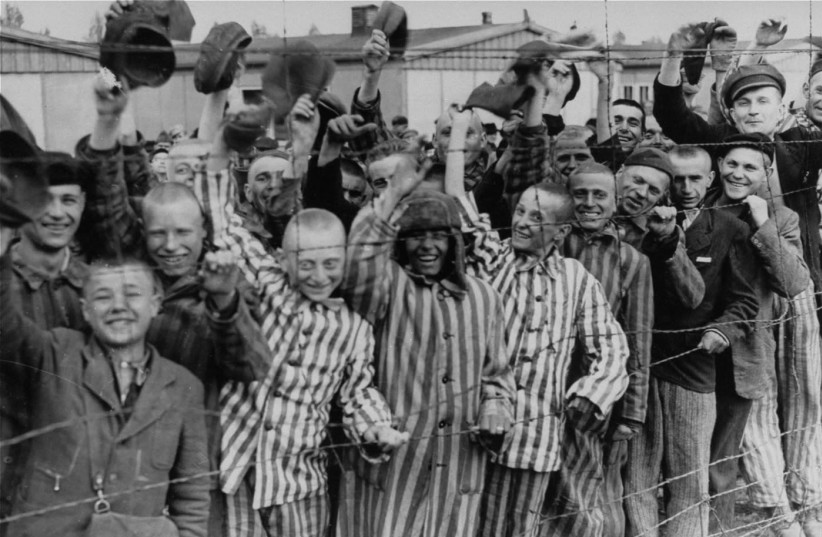The Talmudic tractate Chagigah tells the tale of Rabbi Meir and his teacher Elisha ben Avuyah. Despite his teacher’s abandonment of Judaism and Elisha’s descent into heresy, Rabbi Meir would not abandon his mentor. Elisha was branded as Acher – "Other” – by a Jewish community in the Land of Israel that had shunned the apostate and rebel.
One Shabbat, as Elisha rode his horse in violation of the seventh day’s sanctity, Rabbi Meir walked behind his teacher to learn from him words of wisdom. When they reached the techum Shabbat, the maximum of 2000 cubits that one may walk from his home without violating Torah law on the Shabbat, Rabbi Meir told his teacher not to proceed beyond the limit. Despite his student’s urging, Acher continued riding, thus doubly violating Shabbat. Rabbi Meir was often scolded for following the heretic and attempting to learn from his former teacher. Meir responded that when he finds a pomegranate, he eats the seeds and discards the peel. There were still lessons to be learned from the renegade.
Why did Elisha ben Avuyah abandon Judaism and descend into the heresies of the Greco-Roman world? Rabbinic literature provides a number of answers. The one explanation that I find compelling is that in the wake of the persecutions of Jews by Roman Emperor Hadrian – persecutions associated with the Bar-Kochba rebellion of 132-135 – Rabbi Elisha ben Avuyah witnessed the tongue of Jewish martyr Chutzpit the Interpreter being carried by a pig in its mouth. That the vehicle for the teaching of beautiful words of Torah to be debased in such a disgusting manner convinced Rabbi Elisha that God had abandoned His teaching and His people. The sight shocked him into a rejection of God and into the embracing of foreign teachings.
What Elisha ben Avuyah saw drove him over the edge. He could not repent. The God he believed in was no longer a God of Justice. He could no longer believe in that God. It reminds me of a lecture I delivered in a senior community in south Florida more than a decade ago. A Jewish man in his 80’s approached me before the lecture.
“Rabbi, I was a liberator of Dachau in WWII. When I approached the barbed wire fence of the camp I was overcome by the stench of rotting flesh. As the smell of rot entered my nostrils I lost my faith in God. I could no longer believe. I have since been an atheist.”

I could not judge this man. Perhaps if I were in his boots on that day I would have lost my faith in God too. I told him that and he shook my hand and thanked me. My father was a heavy-machine gun sergeant in the American 97th Infantry Division in the last weeks of the war in Europe – German sniper fire was a constant danger as the American troops moved from building to building to destroy the last fanatics – yet his encounters with Holocaust survivors and his discovery of a synagogue destroyed in Kristallnacht only served to strengthen his will as a Jew. He billeted American troops in German homes and the first thing he told the civilians while carrying a carbine, before throwing them out, was “I am a Jew.” They shuddered with fear and ran out as quickly as possible.
We all have different reactions to severe trauma. Some Jews lose their faith. Others are strengthened by it. But as we end Elul and approach the High Holy Days, we must realize that after the Shoah and the founding of the State of Israel nothing will ever be the same. Those Jews who go to shul on Yom Kippur and fast till they are on the verge of fainting, have learned nothing about faith and doubt in God in such perilous times if they fail to grapple with the watershed events of Jewish history. It cannot be “business as usual” for Jews in the first quarter of the 21st century. We seek teshuvah (repentance) but we should ask God to seek repentance for violating the Sinai Covenant. For those who observe the High Holy Days, there must be so many difficult questions to ask and so few answers. There is nothing wrong with celebrating Rosh Hashanah and observing Yom Kippur. But there is something not right if we do so as automatons. When I lead my congregation in the El Maleh (Memorial Prayer) for millions of Jews murdered by the Nazis and their collaborators, I will not forget the Jew I met who liberated Dachau.
